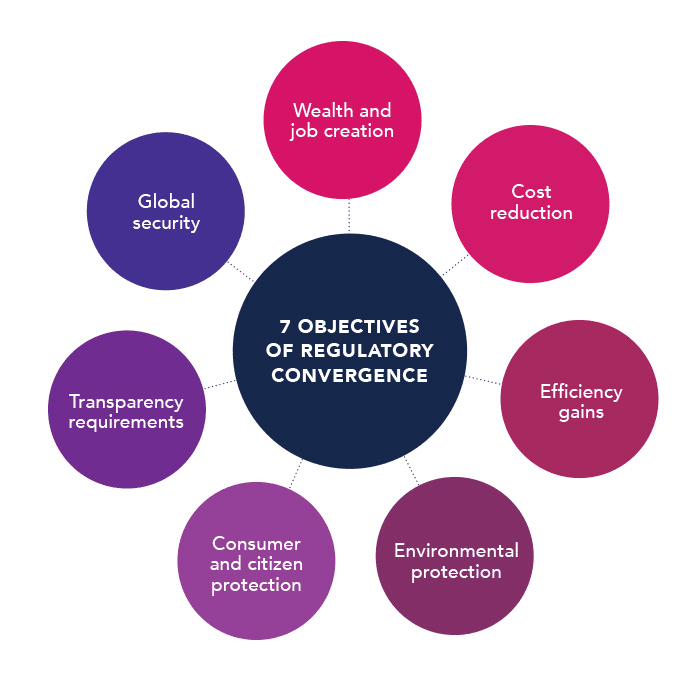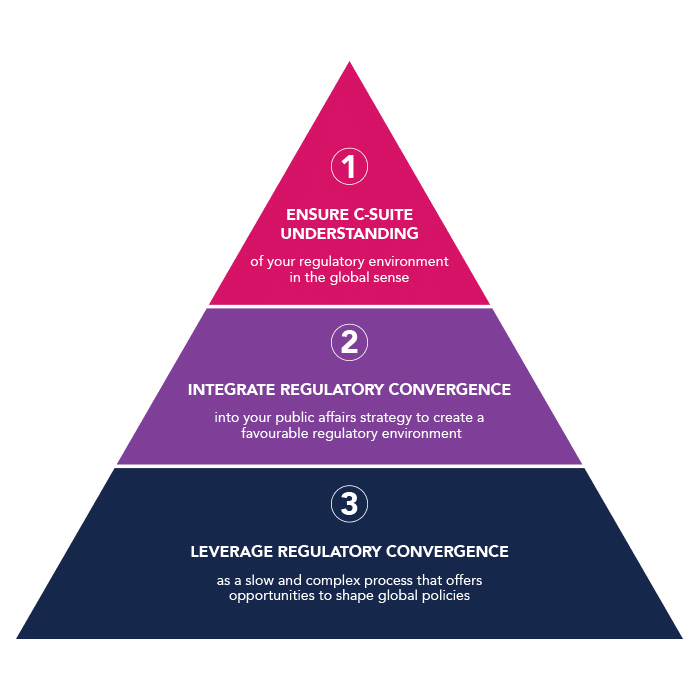The what, why and how of regulatory convergence
octubre 6th, 2023
Regulatory convergence is real. But what is it, how does it affect organizations straddling multiple jurisdictions, and what can be done to navigate this most complex of modern phenomena? Chair of Grayling’s Public Affairs network in Europe, Russell Patten explains.
The gradual demise of divergent national regulations is inevitable, as our economies, markets and societies globalize with exponential speed, and this is resulting in regulatory convergence. In short, this is where standards, policies and laws are aligned across different geographies.
As a global Public Affairs consultancy, we witness examples of this every day, bilaterally between countries, and at a regional and even global level. And there is evidence of it in multiple industry sectors, too from financial services to healthcare, energy to ICT.
What’s driving regulatory convergence?
For regulatory convergence to begin – let alone succeed – there must be mutual benefit. We have identified seven key concerns are driving regulatory cooperation:

Clearly these factors vary between industry sectors, and there are different individual drivers and barriers within each, which we address in detail in our study.
Navigating the minefield
We advise some of the world’s leading organizations on how to maximize the benefits and mitigate the risks of regulatory convergence, turning this phenomenon to their advantage, wherever possible.
Far from being a threat, regulatory convergence can offer substantial economic gains, such as opening up new markets and new types of customers, and reducing legal uncertainty and costs. But there are also risks – such as an adjustment of standards to a lowest common denominator, for example.
There are three key steps to reaping the benefits and avoiding the risks, which we explore in detail in our study:

Regulatory convergence is undoubtedly a minefield. By acknowledging that regulatory risks and opportunities are no longer confined to countries or regions, and placing convergence at the heart of business strategy, it is possible for organizations to take the lead on policy issues and positively impact not just their own futures, but their sector at large.
Join the conversation on Twitter: #regcon #advantage


